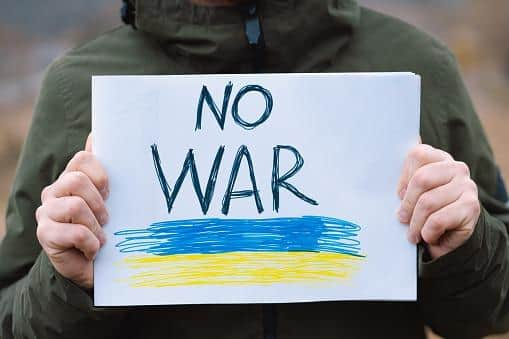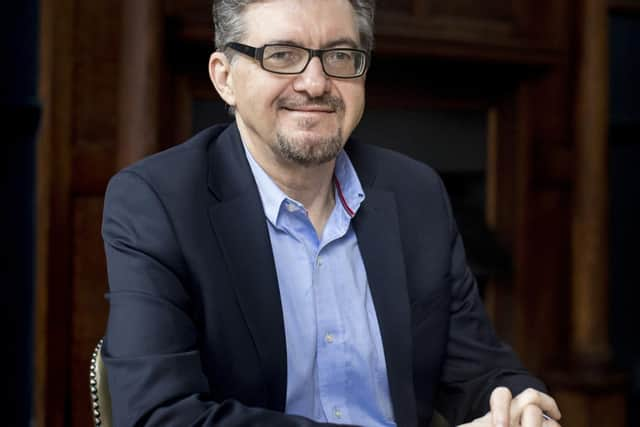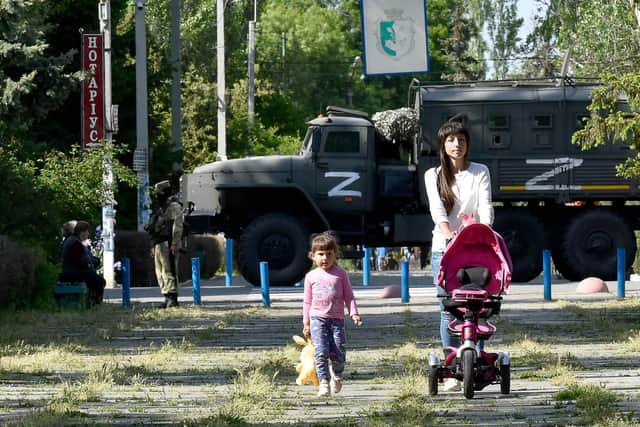Ukraine will not be able to forgive Russia for generations, historian warns
Award-winning writer and Ukraine expert, Serhii Ploky - whose new book, Ashes and Atoms, looks at five nuclear disasters around the world, including the explosion at the Chernobyl power plant in Ukraine in 1986 - says the world “woke up to a completely new reality” in terms of nuclear risk earlier this year amid reports of fighting at both the Chernobyl plant and Europe’s largest nuclear reactor at the Ukrainian town of Zaporizhzhia.
Professor Ploky, who is to speak at the Ukrainian Community Centre in Edinburgh on Friday, told Scotland on Sunday he believes Russia did not launch missiles at nuclear power plants in Ukraine earlier this year with the intent of causing a major nuclear accident – but instead, that the “dangerous” move was part of a badly-thought out strategy which has permeated the war. However, he said further risks of damage to nuclear plants during the war could not be ruled out.
Advertisement
Hide AdAdvertisement
Hide AdHe also warned Ukrainians will find it hard to move on from the conflict in terms of their relationships with Russia, following mass destruction of cities such as Mariupol and the town of Bucha, as well as alleged human rights abuses against civilians.


The academic, the Mykhailo Hrushevsky professor of Ukrainian history at Harvard University in the US, said: “The war came as a shock. First of all, there was a belief that wars don’t happen any more, that the indiscriminate shelling of citizens would not happen anymore. We all believed we were in a different world. It was wishful thinking.
“There is a lot of proximity, cultural and otherwise between Ukraine and Russia. But the cities that have been bombed, wiped out of existence, are the Russian speaking cities. It was completely surreal.”
He added: "It just creates a gulf between Ukraine and Russia that will be there for generations to come. This is not something that can be forgotten tomorrow, or in the next year or ten years. In terms of the next generation, there will be a gulf here and I’m not talking about relationships between the state, but relationships between people and between nations.”
On 24 February, Russian forces took control of all facilities of the Chernobyl nuclear power plant, while in early March, the International Atomic Energy Agency warned Russian military had ordered staff at the Zaporizhzhia nuclear plant to take actions which violated international safety protocols. A week later, Russian forces carried out munition explosions at the site, raising fears of radiation escape further.


Ukrainian president Volodymyr Zelensky subsequently condemned the attacks on the plants as “nuclear terrorism”.
Prof Ploky said: “There was fighting going on at the Zaporizhzhia nuclear power plant. The building was shelled and some of the buildings caught fire. It was extremely dangerous.
"We woke up to a completely new reality. Out of 440 [nuclear] reactors that exist today in the world, none of them was designed with an eye on war. On top of that, there is nothing, almost nothing, in international law that would suggest that waging war on the site of the nuclear power plant is illegal, so we are completely unprepared.”


Advertisement
Hide AdAdvertisement
Hide AdHe added: “I don't think Russians planned to create an accident at the nuclear power plant of Chernobyl, because it's so close to the Russian border and the direction of the wind can change. [There was] no more thought into the operations of the nuclear power plant than into the preparation of that entire war.
"The idea was the war will be over in two to three days, that the Ukrainians will be welcoming the invaders with flowers, so the operations against the nuclear power plants were probably part of that thinking. I think that there was logic in it in the sense that taking over the Chernobyl nuclear zone was the way the easiest way to get to Kyiv, but there was no real thought too how it should be accomplished, or what danger that brings.”
He said Russian attempts to take the South Ukrainian nuclear power plant in March and in April were blocked by Ukrainian forces, but warned similar moves could be made later in the war.
Prof Ploky does however believe the war will eventually come to an end, that some kind of “normalisation” will be created between the two sides.
He points to a very different picture in 2014, when the situation in the Donbas region and Crimea ended in Ukraine capitulating and signing agreements over the control of regions.
He believes that even if Russian president Vladmir Putin was not in charge, change would not happen immediately in Russia.
He said: “It is Putin’s war, but I don't expect also overnight changes to the dramatic transformation of the Russian society. The majority of Russians support the war, they have lived in this information bubble.
"However, if I look at the future after Putin, it is more optimistic than pessimistic.”
Prof Ploky is to speak at an event organised by Topping Books at the Ukrainian community centre on Royal Terrace, Edinburgh, at 8pm on Friday, 27 May.
Comments
Want to join the conversation? Please or to comment on this article.
